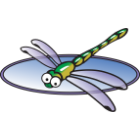Curriculum Information
English Language Arts (ELA)
English Language Arts (ELA) enables each student to understand and appreciate language. Language proficiency generates confidence and competence in communicating in a variety of situations as well as the personal satisfaction of learning. General outcomes for ELA:
- Explore thoughts, ideas, feelings and experiences
- Comprehend and respond personally and critically to oral, literary and media texts
- Manage ideas and information
- Enhance the clarity and artistry of communication
- Celebrate and build community
Mathematics
The main goals of mathematics education are to prepare students to:
- Use mathematics confidently to solve problems
- Communicate and reason mathematically
- Appreciate and value mathematics
- Commit themselves to lifelong learning
- Become mathematically literate adults, using mathematics to contribute to society
The curriculum is organized into four strands:
- Patterns and relations
- Statistics and probability
- Shape and space
- Number
A strand includes concepts, skills and procedures related to a given topic within the mathematics curriculum.
Science
Organization into clusters
This science framework presents Specific Learning Outcomes (SLOs) for kindergarten to Grade 4 science. Within each grade, SLOs are arranged into groupings, referred to as clusters. Clusters one to four are thematic and generally relate to the three science disciplines discussed earlier in the science framework. Cluster zero includes overall skills and attitudes.
Kindergarten to grade 4 science topic chart
There is no information here
Grades 5 to 6 science topic chart
For grades 5 to 8, the Manitoba Science Curricula are built upon the following five foundations for scientific literacy:
- Nature of science and technology
- Science, technology, society and the environment
- Scientific and technological skills and attitudes
- Essential science knowledge
- Unifying concepts
Social Studies
By September of 2007, a new Social Studies Curriculum was fully implemented throughout the entire province in kindergarten to grade 5. The theme for each grade is:
- Kindergarten: Being together
- Grade 1: Connecting and belonging
- Grade 2: Communities in Canada
- Grade 3: Communities of the world
- Grade 4: Manitoba, Canada, and the North: places and stories
- Grade 5: People and stories of Canada to 1867
View more specific information about the Kindergarten to Grade 4 curriculum at Manitoba Education.
View more specific information about the Grade 5 and 6 curriculum at Manitoba Education.
Physical education
Children in kindergarten to grade 6 are provided with an active physical education program during the school cycle. A wide variety of physical activity is offered to all students. There are many clubs and intramurals for students to participate in during mornings and recess times.
Music
Music education is a developmental and sequential process. Students at the primary and intermediate age, learn by doing. The music program includes multiple components and develops skills and knowledge through: singing, moving to the music, creating music, listening activities, dramatization, playing instruments and reading and writing music.
Basic French
Basic French is offered to all students in grades 4-5. The French language is learned through themes such as food, school items, holidays, clothing, etc. with both oral and written work. Although focus is on expression and vocabulary rather than grammar, some verb and sentence structure work is also included to allow the students to more easily communicate in a second language.
Technology
At Dr. F.W.L. Hamilton School we believe that technology is an effective tool to inspire and motivate students to achieve success. One of the prime goals of the school is to integrate technology into curriculum in ways that maximizes student learning and productivity.
Computers are used for the purposes of:
- Research (Internet), Product Creation (Microsoft Word, Microsoft PowerPoint, Microsoft Publisher, Photostory 3, Inspiration, Kidspiration)
- Data collection (Microsoft Excel)
- Communication (email)
- Instruction (projector)
Dr. F.W.L. Hamilton School has a computer lab available to all the students in the school.
 Dr. F.W.L. Hamilton School
Dr. F.W.L. Hamilton School